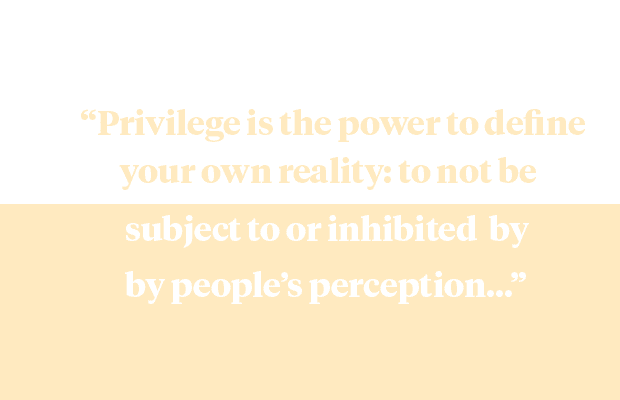When I was first told, “being white passing is the same as being white,” I immediately rejected the idea. For me, regardless of how I look, I don’t feel white and I’ve always been eager to correct people when they assume I am. Upon further reflection, I’ve started to wonder whether this eagerness is a product of pride or privilege.
Racial identity is not entirely rooted in the physical. For example, where you are from informs your identity in different and more complex ways than how you look. A key aspect of racial identity is our personal interaction with our heritage, cultural exposure and family. Culture is not a varnish painted on top of who we are but embedded in us via our memories, superstitions and taste buds. So, regardless of my appearance, I have been exposed to a culture which I have internalised as a positive part of who I am.
Being a person of colour is also relational, and the disadvantages faced by being othered are an important feature of this identity. Our identity, although in part a product of our own agency, is to some extent influenced by our relationship with others on both an individual and systemic level. How a person is perceived is an important determinant in the kind of experience they will have as a member of a minority culture. Ethnicity, in this case, is a sort of structure imposed on you rather than one freely internalised during one’s upbringing.
Because of this, it has been difficult for me to reconcile a personal sense of otherness with the experience of being ostensibly white. I acknowledge that for me, feeling different has usually been positive. Whenever I’ve been forced to do ice-breakers in the first tutorial of a semester, one of my fun facts was always that I’m half-Japanese. It’s ‘fun’ by virtue of the fact that people are often surprised. It always bothered me that members of my family didn’t want me to advertise this fact, because I’ve always been proud of it. I’m only now beginning to realise that those who are not white, or not white passing, do not really see their ethnicity as a fun fact. This enjoyment of personal difference, and desire to inform people of how cultured I am is not a benefit nor option available to non-white-passing people of colour. Being different doesn’t make a person feel special when their differences are disadvantageous. I fear that my attitude towards my racial identity is itself a product of white privilege I can share in the fun aspects of culture without actually engaging with the realities they stem from.
Physical features are used to define our identity because they help us contextualise the spaces we are in (or not in): they are part of our reflections in the media, constructed from a specific worldview. Physical aspects of racial identity are the lines across which people draw their assumptions, their fears and their hatred. Yes, there are religious and cultural practices that divide us, but they are also often signified by some sort of physical trait whether it be inalterable like race, or an active choice, like a hijab. Physical features are the most accessible element of identity that can be used to simplify and categorise who we are. Appearance connotes difference and is the easiest way to recognise and, in turn, vilify it.
Interracial people sit on an ethnic fault line. We are an example of how internal identity may differ from the identity society more broadly imposes on an individual. The gap between how you identify and how you are identified exposes racial structures at work within society.
Privilege is the power to define your own reality: to not be subject to or inhibited by people’s perceptions based on how you look, what you believe or where you come from. People of colour have to exist in a world that they did not define, a world that has defined them. My ethnic ambiguity means the majority of my experience being biracial and thereby part of an ethnic minority has been positive, insofar as our experiences are defined by how others perceive us. This means that ethnic-identifying people aren’t necessarily immune to white privilege. In a society where our physical differences are recast as threats, I get to be proud of being an ethnic minority because I share in another culture but don’t actually have to deal with being a perceived threat. The physical features of whiteness which engender my white privilege mean that, until none of us are perceivably, inherently, threatening, I ought to do that same thing we should all do: register it and realise that it’s on a spectrum.
Ultimately, just because it’s not your fault that you have privilege, or you don’t feel particularly advantaged, doesn’t mean that it’s not your responsibility to recognise it. And that doesn’t mean you can’t be proud of who you are.





